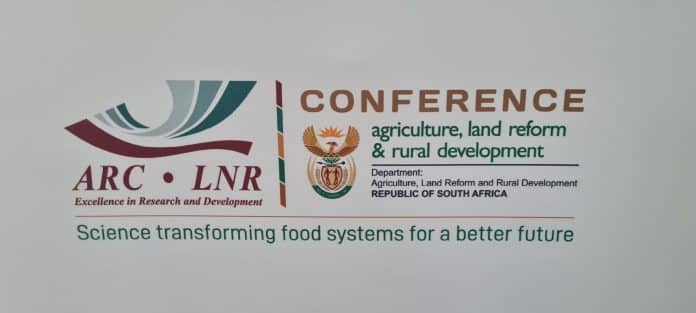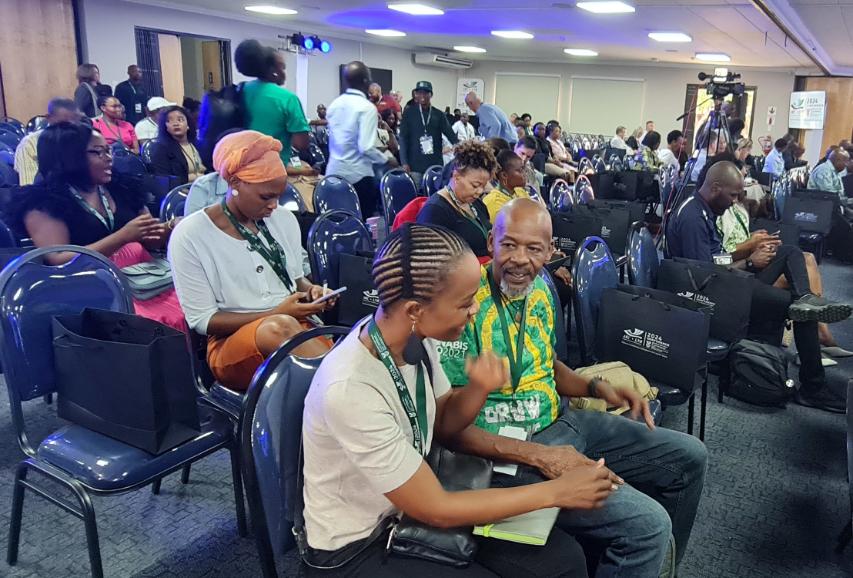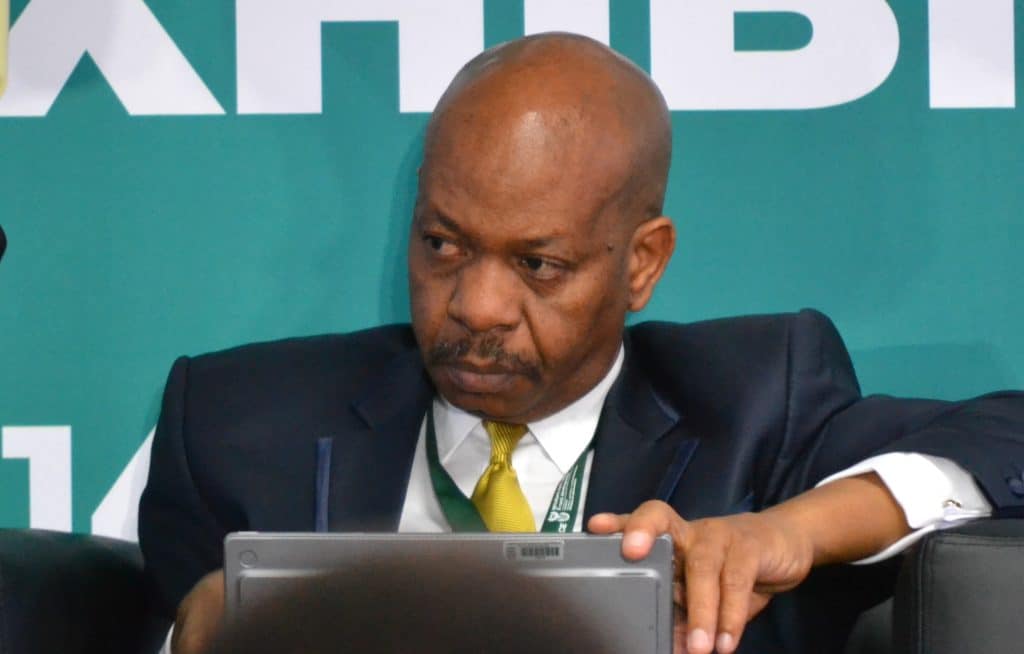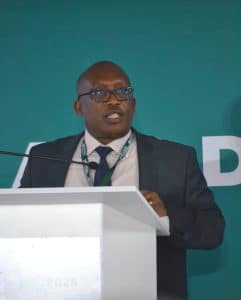Estimated reading time: 4 minutes
Despite publishing 1 606 peer-reviewed articles, releasing 26 new cultivars, training 11 794 people and producing 598 715 blood vaccine doses, the Agricultural Research Council (ARC) still faces a huge demand for agricultural research in South Africa.
This was revealed at the first research conference hosted by the ARC and the Department of Agriculture, Land Reform and Rural Development (DALRRD) at the ARC-Vegetable, Industrial and Medicinal Plants campus in Roodeplaat, Gauteng.
Minister of agriculture, land reform and rural development, Thoko Didiza, said external issues such as climate change, global conflict, food waste and the continuous detection of new pests and diseases were affecting national and international food systems. “These realities are threatening how we have been producing, storing and distributing our food. Globally, there is a growing agreement, including in South Africa, that we must overhaul our food systems. The goal is to ensure everyone’s right to food is met while maintaining environmental sustainability, cost-effectiveness, and social justice.”
Didiza emphasised that research plays a crucial role in the transformation of food production systems.
Read more about grass research that may alleviate climate changes here.
The ARC and DALRRD connection
Dipepeneneng Serage, the deputy director general of agricultural production, biosecurity and disaster management at DALLRD, expressed surprise that state officials seemed unaware of the longstanding connection between the ARC and DALRRD, which dates back to 1994.
“Now that this has been brought to everybody’s attention, it is important to understand that the department’s regulatory mandate will be based on research generated by the ARC.
“So, all commodity organisations must know if they want their research to find its way into the national discourse, they must work through the ARC. This established relationship has been in place for quite some time. It is not new.”
Serage said the department’s plea to the ARC was simple: “A hungry man will not listen to research on the blue sky and various butterfly species, because to him it doesn’t make any sense. Research must start at home with the basics, such as production efficiencies and food cultivars.”
Ageing infrastructure and funding constraints
Dr Litha Magingxa, CEO of the ARC, acknowledged the growing significance of agricultural research. However, he expressed concern about the ageing infrastructure of the ARC, emphasising the need for maintenance. Additionally, the institute has experienced a decline in core technical expertise over time.
“Despite these challenges, the ARC needs to maintain and increase its footprint, but we cannot do this alone. We need to partner with strategic stakeholders to assist us.”
Dr Magingxa said he was delighted that DALRRD had committed to revitalising the ARC as the country’s foremost research institute. He viewed this as a vital step in the right direction.
DALRRD to pick up the research tab
Serage said that it was important that the ARC’s researchers should not concern themselves when it comes to funding, but rather focus their attention on publishing relevant research. “Funding is not your problem; your problem is to find scientific solutions to our problems. We need to stop talking about problems. We need scientists to find solutions.
“South Africa is a desert, and we need drought-resistant cultivars to mitigate water scarcity. Why do we still have centre pivots in the country? I become so ashamed when it is raining, and I see a centre pivot running. We have been talking about foot-and-mouth disease for too long. We need solutions. If you do that, I can promise you the department will remove the money hurdle for you. But we need results.”
Serage said researchers need to ask themselves why their research was important to South Africa – a country that was facing food security problems. “What does it tell us if we are not able to export chicken to other countries such as the United States because our production system is based on growth stimulants? We must be able to produce chickens for markets that require hormone-free chickens.” – Susan Marais, Plaas Media





